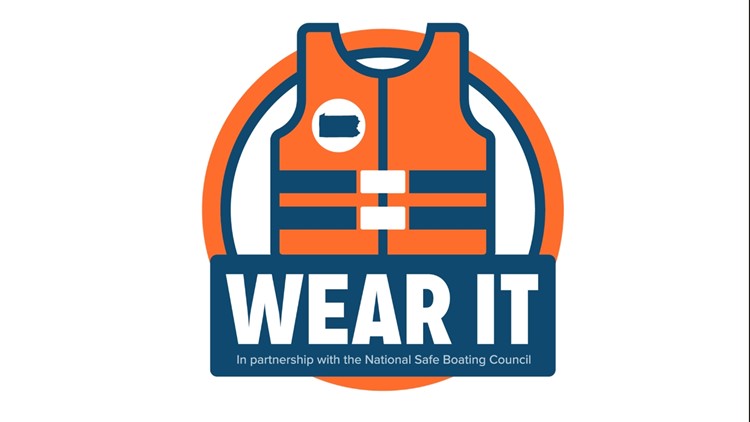HARRISBURG, Pa. — The Pennsylvania Fish and Boat Commission (PFBC) reminds boaters, anglers, and hunters that beginning today, the annual cold-weather life jacket requirement is in effect.
From November 1 through April 30, boaters are required to wear a U.S. Coast Guard approved life jacket while underway or at anchor on boats less than 16 feet in length or on any kayak, canoe, or paddleboard. The requirement applies to all Pennsylvania waters.
"Outdoor opportunities are still plentiful during the fall and winter seasons, and many people are still enjoying the water, whether paddling, fishing, waterfowl hunting, or taking a scenic foliage tour," said Ryan Walt, PFBC Boating and Watercraft Safety Manager. "Boaters should be aware that water temperatures begin to drop rapidly at this time of year, and even on sunny days when air temperatures are comfortable and warm, the water is already cold enough to cause cold water shock, hypothermia, and put your life at risk. A life jacket can keep your head above water until help arrives."
Sudden cold-water immersion, or cold-water shock, occurs when a person is unexpectedly plunged into cold water resulting in an involuntary gasp where water is often inhaled. This uncontrollable reaction causes panic, hyperventilation, inhalation of water, and inhibits the ability of a person to swim.
According to Pennsylvania boating accident reports, nearly 80% of all boating fatalities occurred because boaters were not wearing life jackets. Since the mandatory life jacket wear law was enacted in 2012, the PFBC has seen a significant drop in the percentage of boating incidents resulting in fatalities during the cold weather months.
The PFBC also recommends that anglers participating in ice fishing this winter always wear a life jacket to provide lifesaving protection in the event of a fall through the ice.
Individuals who plan to boat or participate in ice fishing during the cold weather months should follow these Cold Water Survival Safety Tips:
- Always wear a life jacket, even when not required.
- Never boat alone.
- Leave a float plan with family or friends to indicate where your boating trip will begin and end, and when you expect to return.
- Become familiar with the waters you plan to boat in advance of your trip.
- Bring a fully charged cell phone with you and store it in a waterproof container.
- Wear clothing that insulates when wet, such as fleece, polypropylene, or other synthetics
- If you are about to fall into cold water, cover your mouth and nose with your hands to prevent inhaling water.
- If your boat capsizes, stay with the boat, and if possible and get back into or climb on top of the boat.
- While in cold water, do not remove your clothing.
- If you cannot get out of the water and you are wearing a lifejacket, get into the Heat Escape Lessening Posture (HELP), bringing your knees to your chest and holding them close to the body.
- Once out of the water, remove wet clothes and warm up as soon as possible.
- If you have been exposed to cold water, act on the side of caution, and seek medical attention when necessary.
To learn more about boating basics, regulations, and how to take a boating safety course, visit the Boating page on the PFBC website.



